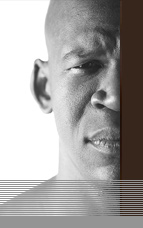How are sleep disorders diagnosed?
Sleep disorders are often diagnosed based on a number of factors including your
- description of symptoms
- age and gender
- psychological history
- medical history
- family member or partner's observation of disruptive sleep patterns
In order to determine if you have a sleep disorder, it is important to pay attention to your sleep habits and daily routine. Keeping a sleep diary (see Helpguide's sample sleep diary ) may be helpful in discussing your daily patterns with your doctor or sleep specialist.
Other methods physicians and sleep specialists use to diagnose sleep disorders include:
- Epworth Sleepiness Scale - This sleep questionnaire asks you to rank whether certain situations make you sleepy and, if so, how sleepy. Your responses will assist your doctor in providing a formal diagnosis.
- Nocturnal polysomnogram - This test will measure the electrical activity of your brain (electroencephalogram) and heart (electrocardiogram), and the movement of your muscles (electromyogram) and eyes (electro-oculogram) and usually requires an overnight stay at a sleep clinic for observation purposes.
- Multiple sleep latency test (MSLT) - This test measures how long it takes for you to fall asleep during the day. Sleep specialists will observe your sleep patterns.
- Repeated test of sustained wakefulness (RTSW) - This test measures how long it takes for you to fall asleep by challenging your ability to stay awake. During the test, you will likely be placed in a quiet room with dim lighting and asked to stay awake.
- Blood test - Depending on your description of your symptoms and personal and family medical histories, a blood test may also be conducted. The blood test may not be conclusive but can be helpful in establishing the possibility and probability of certain sleep disorders.
While most common sleep problems can be addressed through making lifestyle changes and developing an improved sleep hygiene routine (see Helpguide's Insomnia: Causes, Cures and Treatments and Tips for a Good Night's Sleep for more information), it is important to see your doctor or a sleep specialist if your sleep does not improve. To find a sleep specialist near you, see online resources . |


